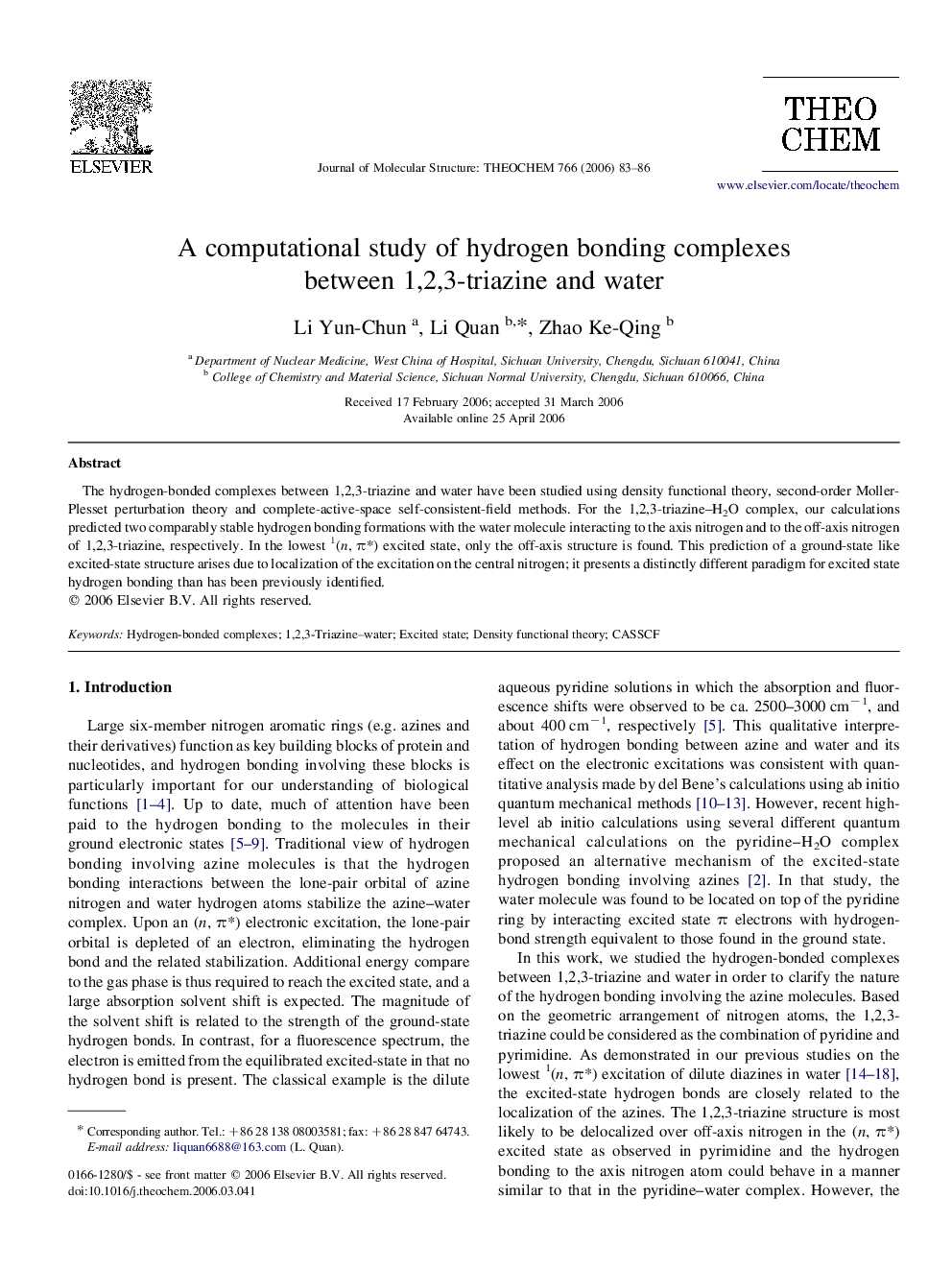| Article ID | Journal | Published Year | Pages | File Type |
|---|---|---|---|---|
| 5419209 | Journal of Molecular Structure: THEOCHEM | 2006 | 4 Pages |
Abstract
The hydrogen-bonded complexes between 1,2,3-triazine and water have been studied using density functional theory, second-order Moller-Plesset perturbation theory and complete-active-space self-consistent-field methods. For the 1,2,3-triazine-H2O complex, our calculations predicted two comparably stable hydrogen bonding formations with the water molecule interacting to the axis nitrogen and to the off-axis nitrogen of 1,2,3-triazine, respectively. In the lowest 1(n, Ï*) excited state, only the off-axis structure is found. This prediction of a ground-state like excited-state structure arises due to localization of the excitation on the central nitrogen; it presents a distinctly different paradigm for excited state hydrogen bonding than has been previously identified.
Related Topics
Physical Sciences and Engineering
Chemistry
Physical and Theoretical Chemistry
Authors
Li Yun-Chun, Li Quan, Zhao Ke-Qing,
